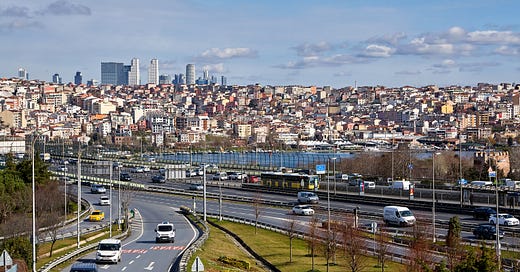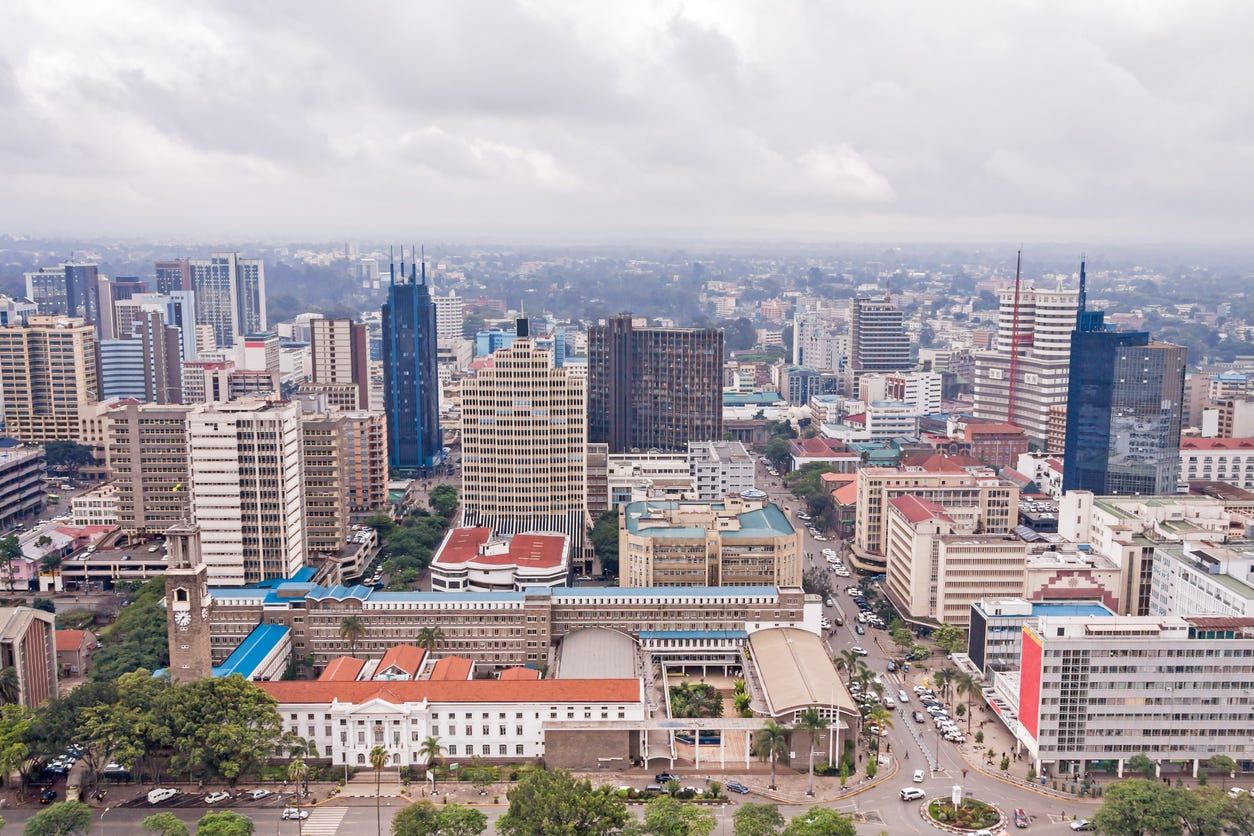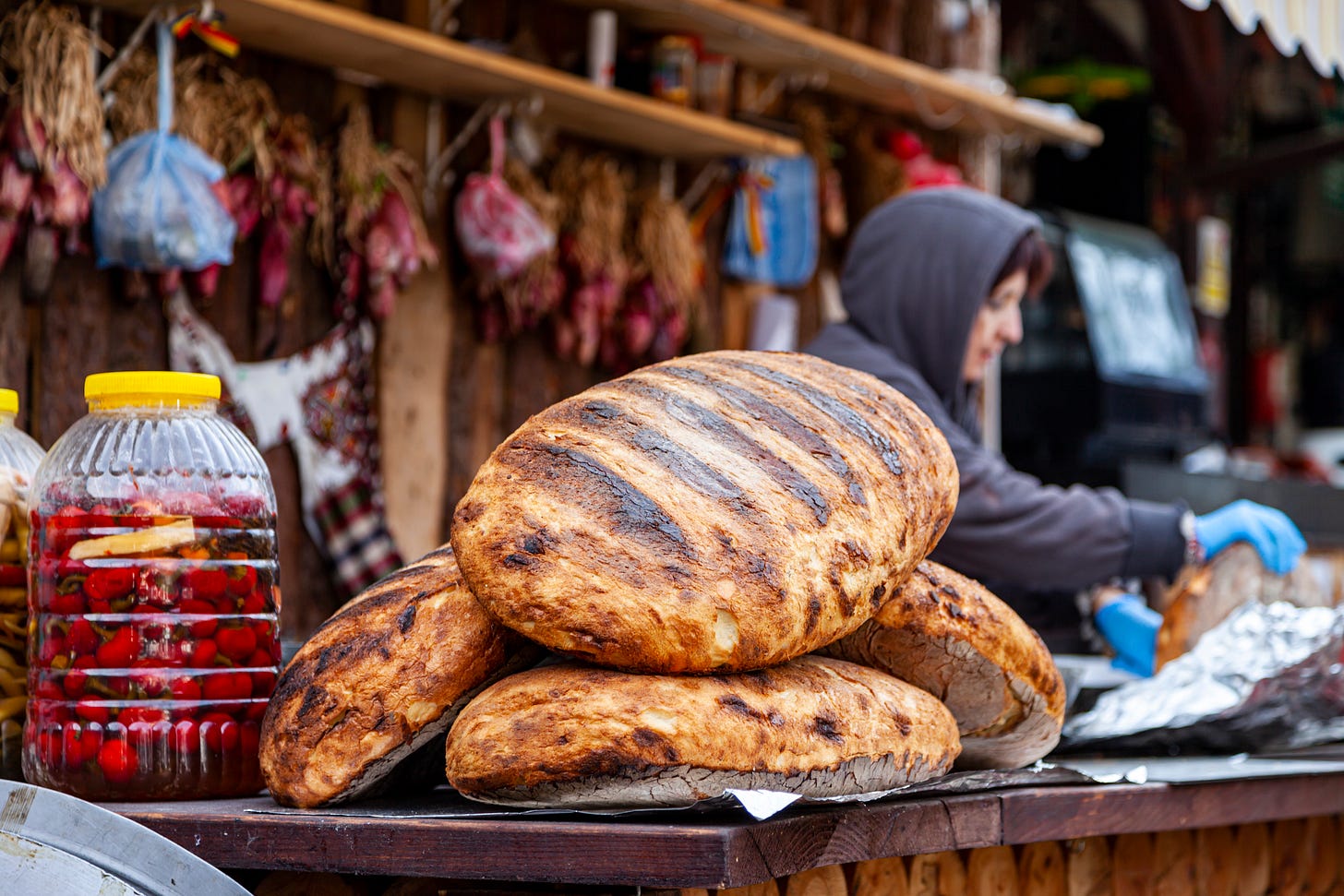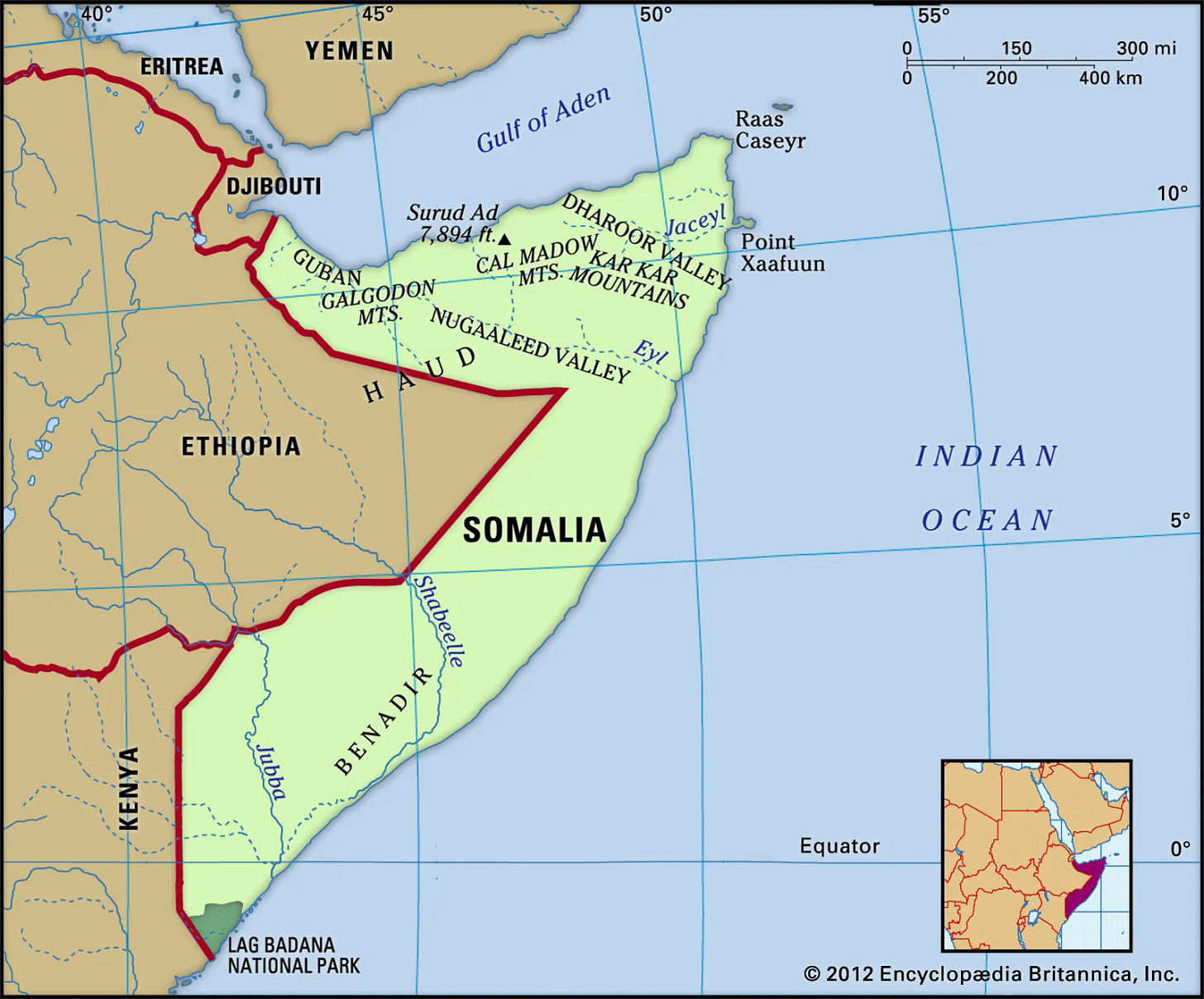Emerging Markets Monitor - July 28
EM Central Banks and Fed Hikes, Investors Flee E. Africa Stocks, Global Food Crisis, Russia-China Gas Pipelines, Somalia Grants First Two Foreign Bank Licenses
The Top 5 Stories Shaping Emerging Markets from Global Media - July 28
EM Central Banks Under Pressure to Keep Up With US Federal Reserve Hikes
“Emerging-market central banks are under pressure to raise interest rates even faster than the Federal Reserve as they try to stem investor outflows.”
“The Central Bank of Kenya is also meeting today and is expected to deliver a half-percentage point hike, bringing its benchmark rate to 8%. On Friday, Colombia’s central bank is expected to go even bigger. Analysts are forecasting a 1.5 percentage point rate-increase to 9%, according to FactSet.”
“Earlier this week, Hungary’s central bank boosted its key lending rate by a full percentage point, to 10.75%.”
“Like the Fed, emerging-market policymakers are under pressure to raise rates to temper soaring inflation. But their task is more complicated than that. Emerging markets are also trying to keep investors from dumping their assets. As U.S. rates rise, riskier emerging-market assets look less attractive to investors.”
“Many emerging-market central banks began raising rates last year, which has prevented steeper selloffs, said analysts at Oxford Economics. But higher rates haven’t fully staved off market declines.”
“Data from the Institute of International Finance showed investors pulled roughly $30 billion out of emerging-market assets from March--when the Fed delivered its first rate increase since 2018--through June.” Chelsea Dulaney reports.
East Africa Stock Markets Feel Pinch as Foreign Investors Exit
The East African
“The Nairobi Securities Exchange and the Dar es Salaam Stock Exchange are facing falling share prices due to massive selloffs by international investors who are liquidating their investments in emerging and frontier markets as a result of rising interest rates in the US and Europe, and the geopolitical tensions brought about by the on-going war between Russia and Ukraine.”
“Emerging and frontier markets are also seen as unattractive because of depreciating currencies, high inflation, increasing political instability and rising debt levels in the wake of Zambia and Sri Lanka having defaulted on their repayment obligations.”
“In May, Sri Lanka defaulted on its $12.5 billion outstanding Eurobond repayment for the first time as the country struggles with its worst financial crisis in more than 70 years. In 2020, Zambia defaulted on its $42.5 million Eurobond repayment becoming the first African country to default on its debt during the Covid-19 pandemic.”
“According to Oxford Economics Africa, as the Fed tightens policy, bondholders are demanding higher returns for investing in emerging markets….The NSE is currently 58 percent controlled by foreign investors who have been net sellers from 2017 to 2021.”
“NSE data shows that foreign sales increased significantly in the first six months of this year, pushing trading to an all-time low valuation of 10 times price-to-earnings ratio, making it an ideal time for investors to buy shares. Last month, the benchmark index fell below 1,700 for the first time in 20 years, indicating muted activity and free fall of prices on the 68-year-old stockmarket.”
“The majority of investors on the Rwanda Stock Exchange are domestic investors at 93.22 percent, followed by other East Africans at 5.7 percent and international investors at 1.08 percent.”
“In 2014, Tanzania lifted restrictions on foreigners owning more than 60 per cent of companies listed on the DSE. The move opened up the shareholding of some of the country’s biggest and profitable firms to non-Tanzanians, resulting in increased foreign inflows to the DSE.” James Anyanzwa reports.
How Bad Will the Global Food Crisis Get?
Financial Times
”Has the high price of food passed a peak? Even before the UN-brokered grain deal between Kyiv and Moscow gave the green light last week for shipments to leave Ukraine’s Black Sea ports, food commodity prices had been plummeting.”
“Fears of recession, a bumper harvest in Russia and hopes of revived grain trade flows have pushed prices lower. But the price declines do not mean the food crisis is over. Analysts say the underlying factors that drove markets higher are unchanged.”
“The ongoing war is only one of a multitude of problems that could sustain higher hunger rates for many years to come. The Ukraine conflict came at a time when food prices were already being pushed upwards by a range of factors — mainly droughts affecting key crop-producing countries and supply chains dealing with the residual effects of the pandemic.”
“In poorer countries whose economies have been left in tatters by Covid-19 lockdowns, the war only exacerbated a grim situation….The true impact of this combination of factors will only become apparent next year, analysts say. ‘I’m more worried about 2023 than 2022,’ says one.”
“…Across much of Africa, the Middle East and central Asia, consumption of staples outweighs production. It is countries in these regions that are most exposed to global price rises, according to commodity data group Gro Intelligence.”
“Many emerging economies are facing the additional burden of a decline in their currencies on top of rising food prices. The impact on countries in the Middle East and Africa that depend on imports from Ukraine and Russia has been stark. Egypt has turned to the IMF for aid, inflation in Turkey has surged to almost 80 per cent while the World Bank has described the crisis in Lebanon as one of the most severe of the past 100 years.” Chelsea Bruce-Lockheart and Emiko Tarazano report.
This Map Shows the Massive Pipeline Russia and China Are Building
CNBC
“China and Russia are in the final stages of building the first pipeline that can send gas from Siberia to Shanghai.
“‘Power of Siberia’ — as the portion located in Russia is called — began delivering natural gas to northern China in December 2019, according to Chinese state media. In China, the pipeline runs down the eastern side of the country, past the capital city of Beijing and down to Shanghai. The middle phase started operations in December 2020, and the final southern section is set to begin gas deliveries in 2025, state media said.”
“State-owned energy companies, Russia’s Gazprom and China National Petroleum Corp., have been building the pipeline for about eight years. The China-Russia pipeline comes as Moscow faces the threat of losing natural gas purchases from the European Union, a big customer that aims to cut two-thirds of its Russian gas imports in the wake of the Ukraine war.”
“China has been looking to diversify its energy sources. Beijing has refused to condemn Moscow for its unprovoked invasion of Ukraine in late February.” Evelyn Cheng reports.
Frontier Markets: Somalia Issues First Two Foreign Banking Licenses
North Africa Post
“Central Bank of Somalia (CBS) has recently granted its first two foreign banking licenses — to Turkey’s Ziraat Katılım bank and Egypt’s Banque Misr — in decades as the country seeks to rebuild its financial sector and attract international investment.”
“Both state-owned financial institutions were approved by Somalia’s central bank at the start of July. Being the first two licenses granted to foreign lenders since 1970, the historic decision follows the election of President Hassan Sheikh Mohamud in May.”
“The CBS governor Abdirahman Abdullahi said the new entrants are ‘solid banks that will add value to the development of Somalia’s financial sector and contribute to the growth of our economy’. He added that their entry will enable local banks to gain experience of international banking standards.”
“In the 1960s, foreign commercial banks that operated in Somalia included Italy’s Banco di Napoli and Banco di Roma, Egypt’s Banque de Porte Saide and UK’s National Grindley’s Bank. But, when the Supreme Revolutionary Council (SRC) overthrew the civilian government in October 1969, all foreign banks in Somalia were nationalized under an order of the SRC on May 7, 1970.” North Africa Post reports.
"Success is not final, failure is not fatal: it is the courage to continue that counts."
- Winston Churchill








